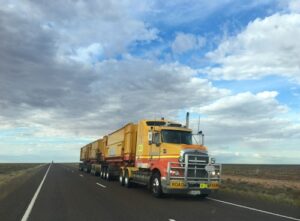Car and truck accidents in Nevada differ in several ways that can impact your well-being and legal outcomes. When you understand these differences, you can better protect yourself and your loved ones. Car accidents often involve smaller vehicles and result in less severe injuries. Truck accidents, however, involve much larger vehicles and can lead to serious harm. These accidents also involve different legal considerations, such as regulations specific to commercial trucks and the possibility of holding multiple parties accountable. Navigating these complexities may feel overwhelming. However, staying informed is key. You can learn more about what distinguishes car and truck accidents to equip yourself with the knowledge needed in such situations. When you know what to expect, you can take steps to protect yourself and seek the right assistance. In the following sections, you’ll discover four key differences that may alter your approach to handling these incidents.
Vehicle Size and Damage
The first noticeable difference lies in the vehicle size. Cars are smaller and typically weigh much less. Trucks, including 18-wheelers, can weigh up to 80,000 pounds. This significant weight gap often results in more severe damage during accidents. Truck accidents usually cause greater property damage and have a higher risk of fatalities. Understanding this can help you gauge the potential severity of an accident and take necessary precautions.
Injury Severity
Because of their size and weight, trucks can cause more severe injuries than cars. Car accidents might result in whiplash or bruises, whereas truck accidents can lead to life-threatening injuries. It’s important to know that medical treatments and recovery times can differ significantly, affecting your health and financial stability.
Legal and Regulatory Requirements
Truck drivers and companies must follow strict federal and state regulations, which include hours of service and maintenance checks. Car drivers mainly follow standard traffic laws. Understanding these legal frameworks can impact how you handle insurance claims and legal actions. Liability in truck accidents can involve multiple parties, such as the driver, trucking company, or even a manufacturer. This complexity can influence settlement time and compensation.
Insurance and Liability
Insurance policies for trucks are generally more comprehensive than those for cars. This is because the potential damage and injury from truck accidents are often greater. Car accidents generally involve straightforward claims against an individual driver’s policy. Truck accidents, however, might involve claims against the company and its insurers. Knowing this difference can help you prepare for the claims process and protect your rights.
| Aspect | Car Accidents | Truck Accidents |
| Vehicle Size | Smaller, lighter | Larger, heavier |
| Injury Severity | Less severe | More severe |
| Legal Requirements | Standard traffic laws | Federal and state regulations |
| Insurance | Individual policies | Comprehensive policies |
Understanding these differences can help you prepare for any legal and financial outcomes. It’s crucial to arm yourself with accurate information, whether you’re a driver or a passenger. Remember, knowledge empowers you to take control of the situation.

